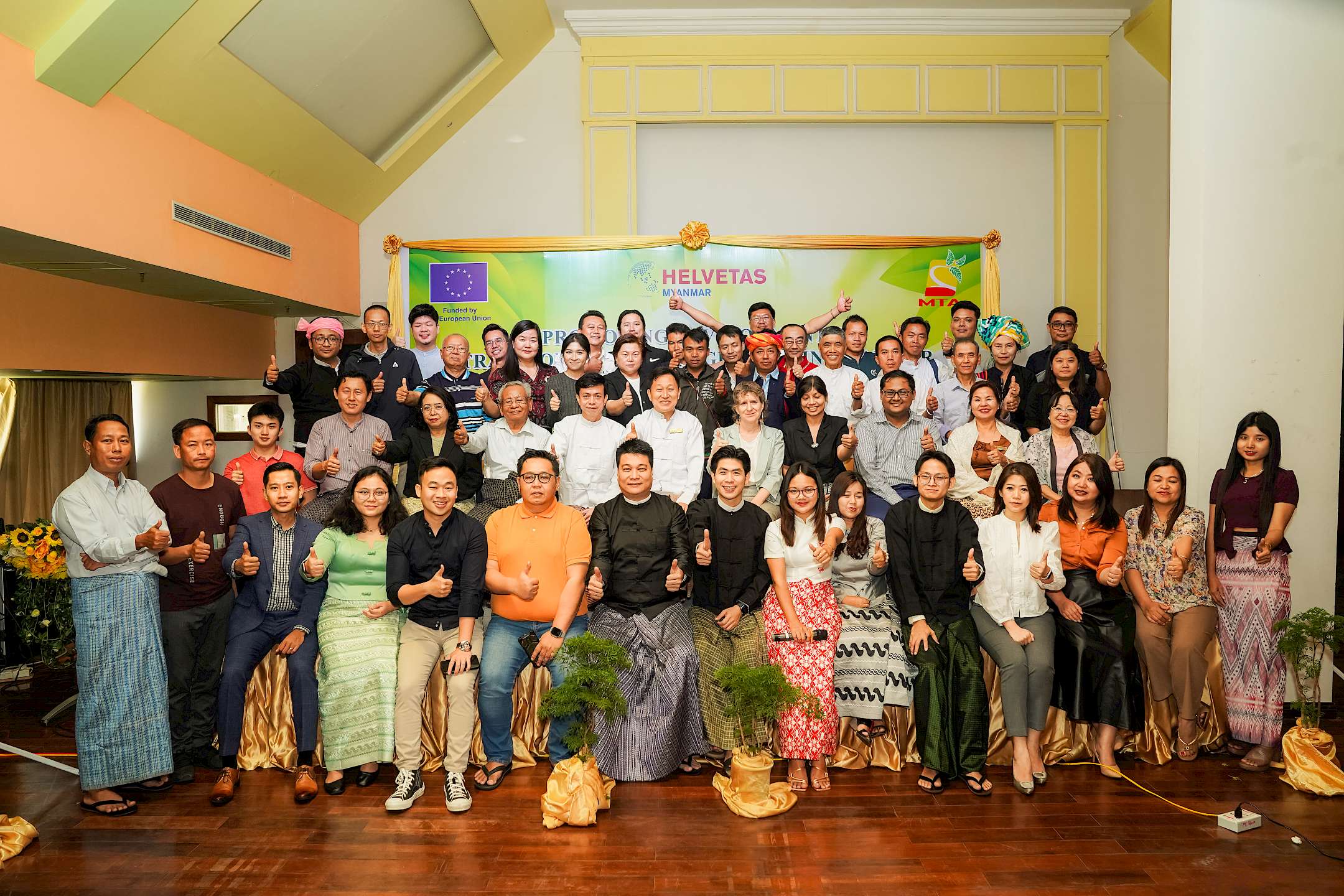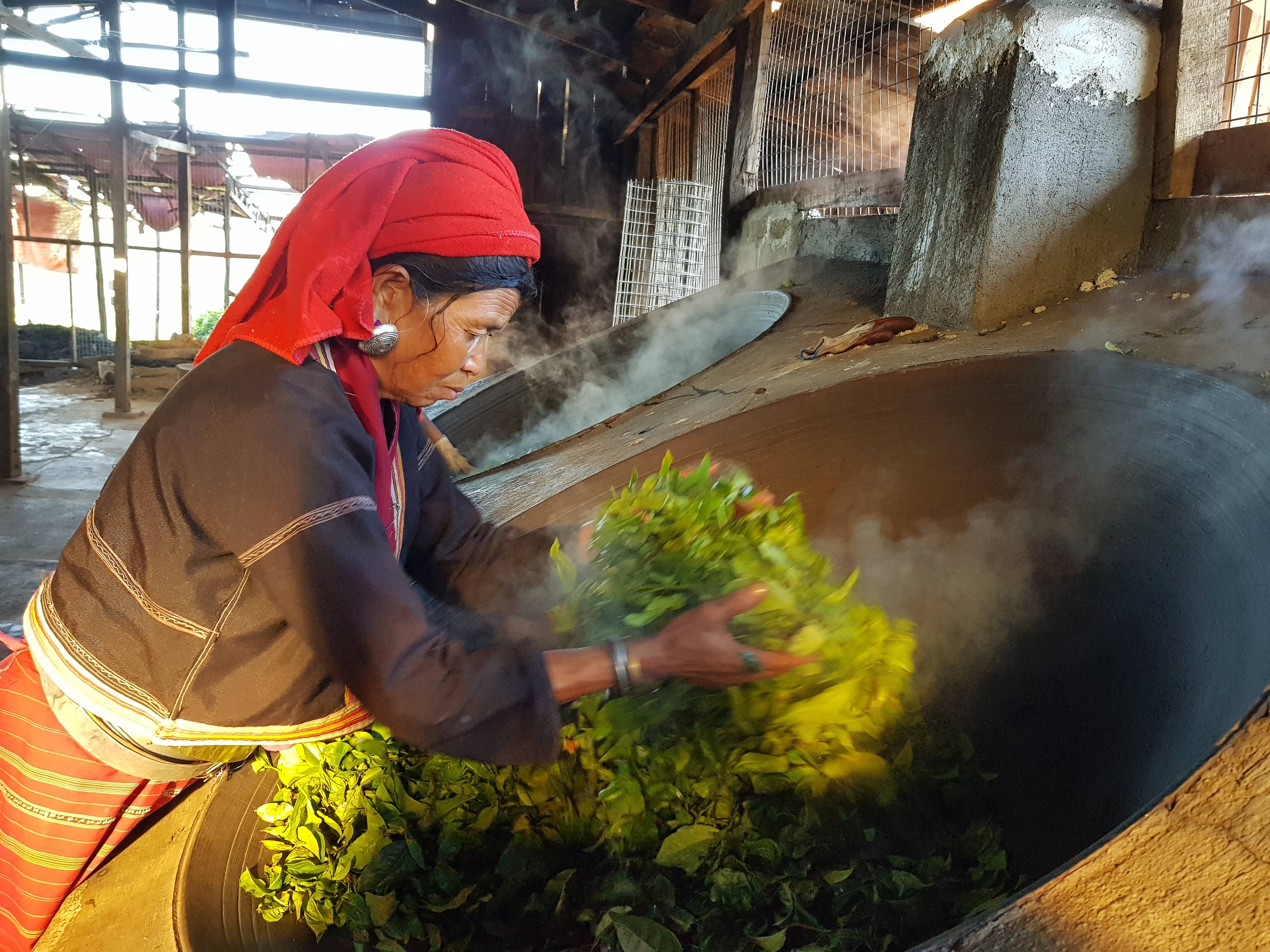
Myanmar’s agrifood sector has been severely affected by a “dual crisis”, the COVID-19 pandemic and the coup d’état, which triggered economic and financial instability, reversing much of the progress made since the country’s re-opening in 2008. Like other subsectors, tea producers and processors have faced civil unrest, a banking and economic crisis, and disrupted access to both local and international markets.
In addition to these challenges, climate-related extreme weather has further impacted the sector. In both 2023 and 2024, unusually high temperatures led to partial crop failures and reduced tea-leaf quality. According to a 2023 high-resolution climate forecast by the Center for Development and the Environment’s Geo-Myanmar project, tea-producing areas in Shan State are expected to experience increasing extreme heat and erratic precipitation in the coming decades. Adapting the agrifood sector to these changing climatic conditions is therefore essential to safeguard rural livelihoods.
Against this backdrop, the European Union (EU) funded SWITCH-Asia project, Promoting Environmental Transformation of Agrifood in Myanmar (PRET Myanmar), was officially launched on 7 March 2025 at the Rose Garden Hotel in Yangon. The launch was attended by implementing partners Helvetas Myanmar, the Myanmar Tea Association, and other key stakeholders. Tea products were also showcased during the event.


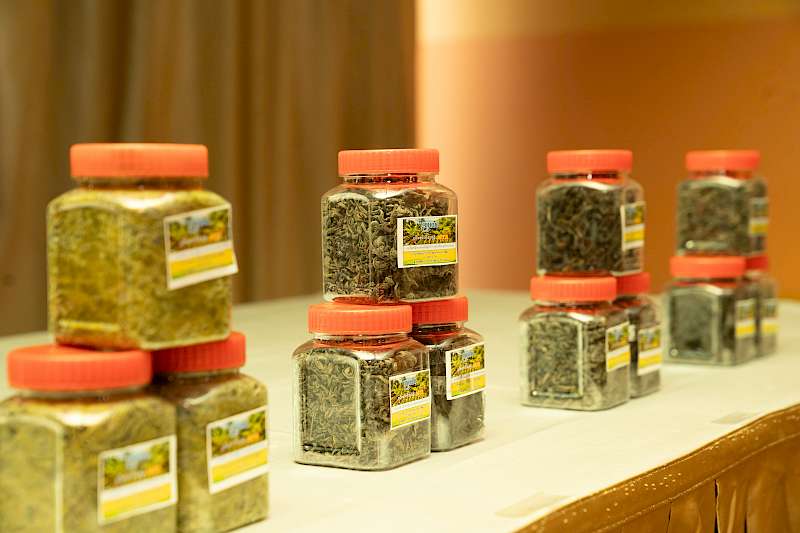
The PRET project aims to drive systemic change in Myanmar’s agrifood sector, using the tea subsector as a model for broader transformation. Its core objective is to support the sector’s transition toward a low-carbon, resource-efficient, and circular economy, while promoting sustainable value chains and products that contribute to local economic recovery.
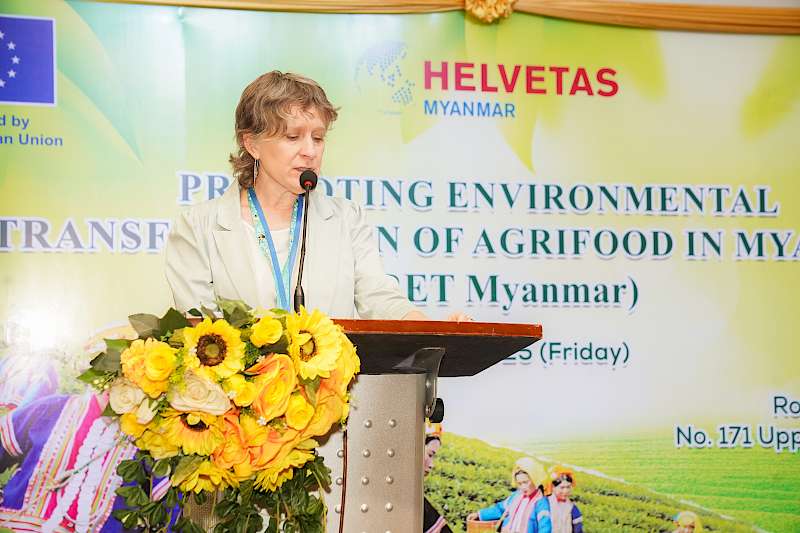
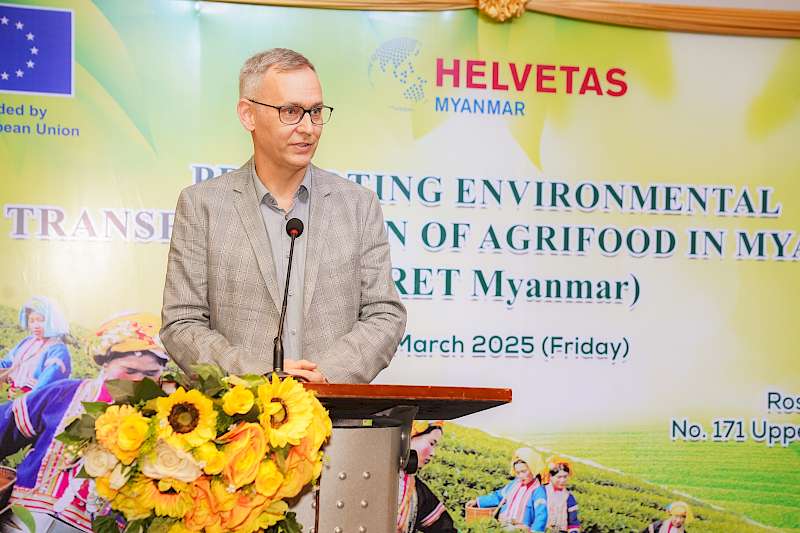
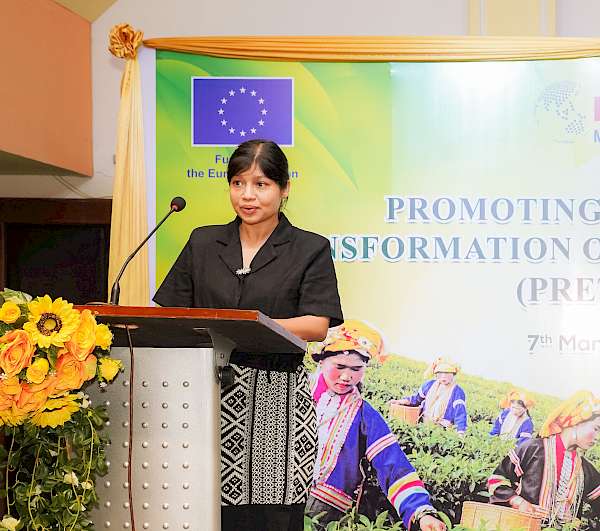
The event opened with a welcome address by Ms. Virginie Lafleur-Tighe, Head of Cooperation at the Delegation of the European Union to Myanmar, followed by a keynote speech by Mr. Andrew Wilson, Country Director of Helvetas Myanmar.
Adapting the agrifood sector to changing climatic conditions is critical for safeguarding rural livelihoods. PRET specifically addresses the needs and constraints of the agrifood sector, starting with the tea subsector as an entry point. It also reflects the EU's commitment to supporting the transition of countries toward a low-carbon, resource-efficient, and circular economy, in line with the broader goals of the European Green Deal, emphasized Ms. Lafleur-Tighe.
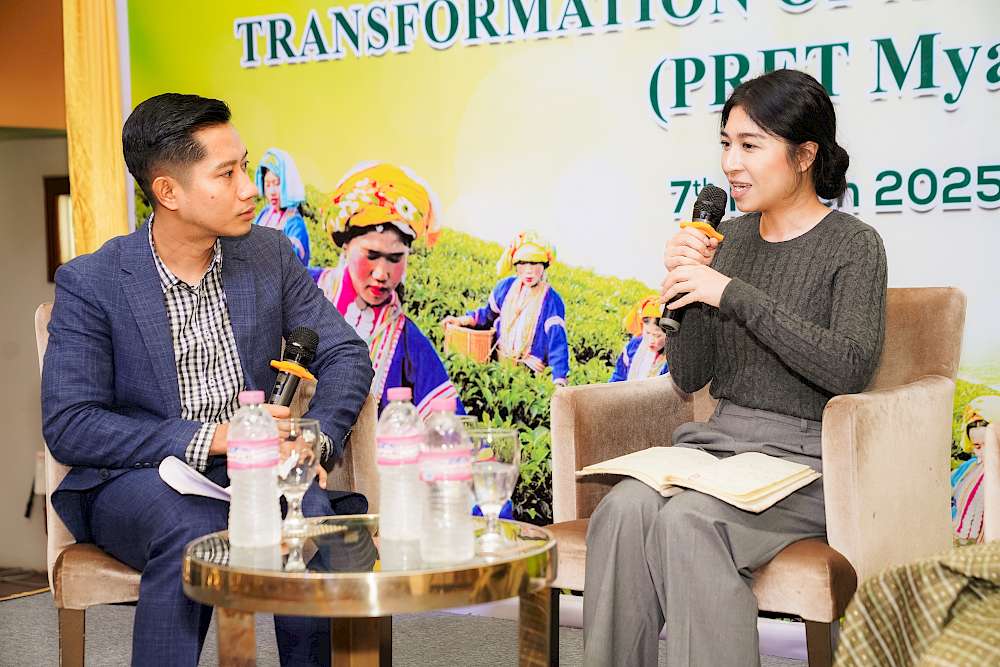
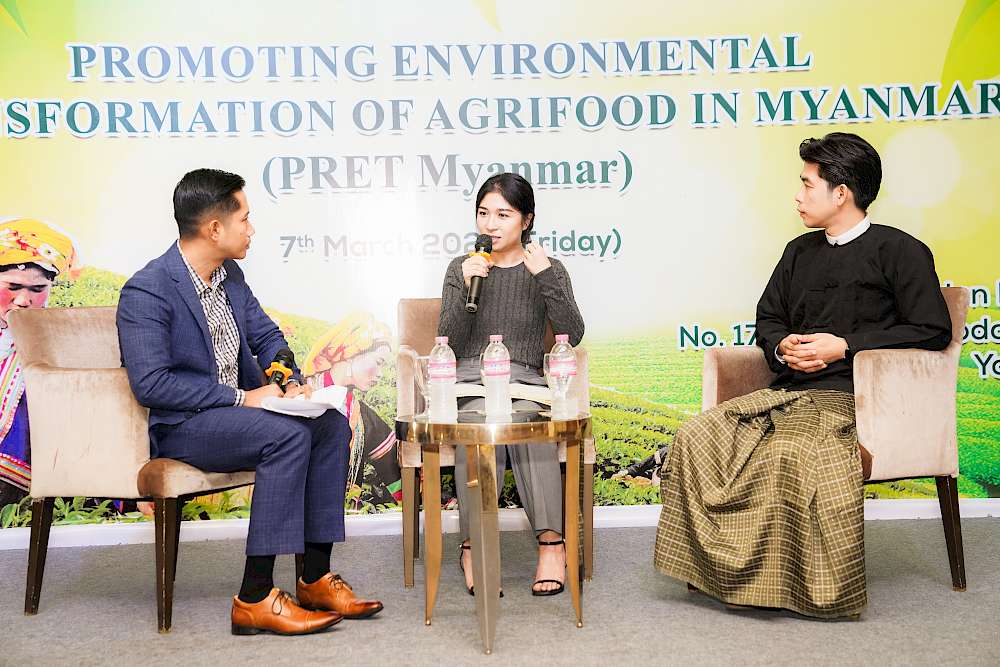
A panel discussion on environmental transformation in the tea sector followed, featuring experienced panelists from the Myanmar Tea Association. The discussion explored the challenges and opportunities in transforming the tea value chain and examined the untapped potential the sector holds.
The PRET Consortium Team also presented a detailed overview of the project, outlining its key objectives and anticipated impact on Myanmar’s tea sector, along with its potential for replication across other agrifood sectors.
The event concluded with closing remarks from Mr. Win Naing, President of the Myanmar Tea Association, who highlighted the importance of the project and encouraged members of the association to actively collaborate in its activities.
Learn more about the project here: https://www.switch-asia.eu/project/pret-myanmar/
